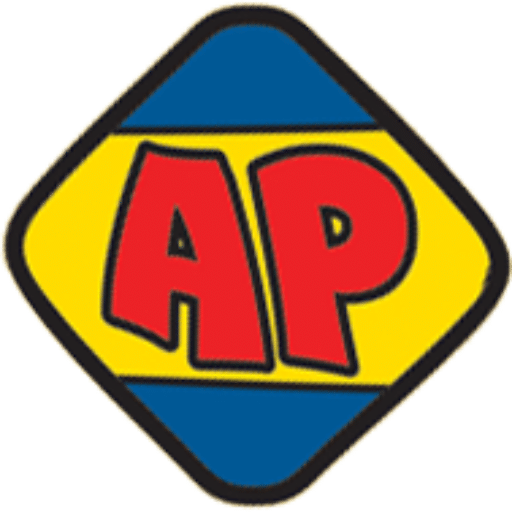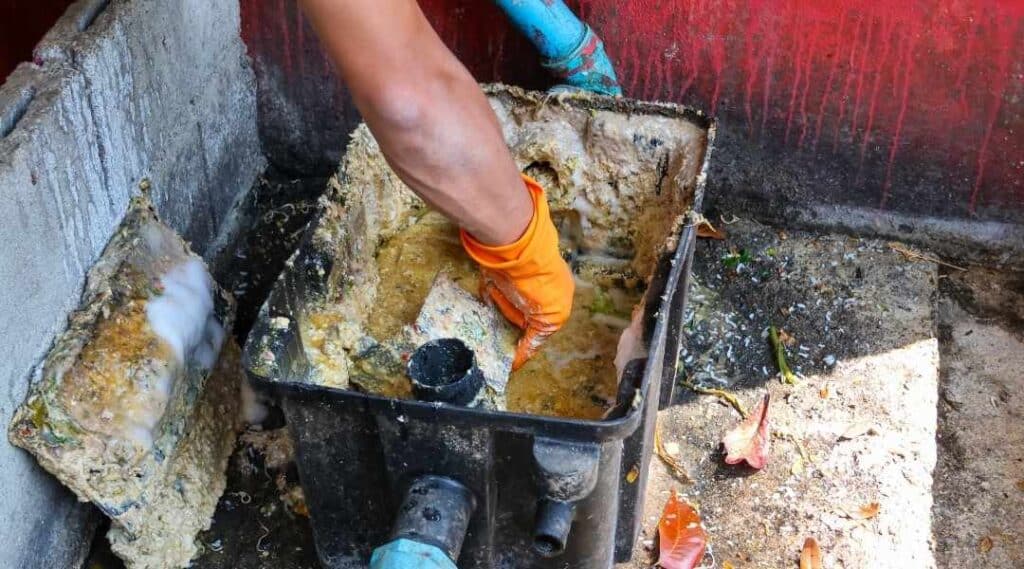Grease buildup in sewer lines often sneaks up on property owners. A little oil down the sink may seem harmless, but as it solidifies, serious clogs form deep within the pipes. Looking closer at grease’s impact reveals how these blockages start and grow over time.
Taking steps to prevent accumulation keeps drains clear while fostering drain health through good practices and maintains a robust system free from backups. Understanding this cycle spotlights effective remedies that address both household habits and larger maintenance routines. In essence, preparing for today ensures a cleaner tomorrow without disruptive plumbing emergencies.
Recognize Grease Impact on Sewer Lines
Grease, a byproduct of cooking and skin oils alike, can accumulate in sewer lines. When combined with assorted debris such as dirt or soot, it solidifies over time. This process mirrors the greasy residue on a stovetop hardening into grime atop an untouched ceiling fan weeks later.
Fast food consumption contributes significantly to this issue; consider that 50 million Americans eat fast food daily. Other grease sources are less apparent. Oil from our fingers transfers to surfaces we touch, like door knobs, while oil tracked in on shoes infiltrates buildings through foot traffic areas.
These oils find their way into sewer systems where they thicken and block pipes if not managed properly (sewer drain cleaning is essential here). Regularly maintained facilities ensure these compounds don’t cause widespread clogs but when overlooked, create significant blockage risks leading inevitably towards professional intervention for cleanup.
Preventive Measures for Grease Accretion
Regular maintenance of grease traps is crucial; experts recommend cleaning them every few weeks to avert accumulation and blockages. Surprisingly, cooking oil has longevity: properly filtered, it can be reused for several weeks or even months. This not only prevents clogs but also provides economic benefits by maximizing the utility of oils.
For disposable materials that effectively absorb fats, opt for paper towels rather than fabric cloths. When you launder oil-soaked fabrics, residual grease ends up in plumbing systems where it shouldn’t be—a stealthy culprit contributing to future blockages.
Moreover, securing professional drain cleaning services periodically is wise preventative maintenance. Such measures dislodge accumulated deposits. That could otherwise escalate into severe drainage issues over time. Remember: It’s never too late to start implementing these strategies to safeguard your pipes from the gradual menace posed by grease build-up.
Effective Cleaning Practices for Drain Health
Maintaining healthy drains is essential to preventing major clogs. A vigilant approach includes weekly flushes with hot water, which can melt away early grease formations before they solidify within your pipes. For unyielding blockages, tools like a plumber’s snake or hydrojetting kits are more suitable; these allow homeowners to attack troublesome clogs below the surface effectively.
It’s crucial, though, when using such tools, to prioritize pipe integrity and follow instructions meticulously. Missteps could worsen issues. Persistent drainage problems often necessitate professional help.
A reputable licensed plumber should be engaged for persistent backups or signs of systemic plumbing malfunctions. Proper qualifications ensure competent handling of complex drain health challenges without causing additional damage.
When grease accumulates in sewer drains, it often leads to serious blockages. As unsuspecting substances like oil from kitchens stick to pipe walls, these create narrowed passages for wastewater. Over time, this can result in significant clogs that disrupt drainage and require professional attention.
Homeowners should avoid pouring fats down the drain and schedule regular cleanings with Amazing Plumber to prevent such issues. Quick action may save them from costly repairs due to severe sewage backups caused by congealed grease choking their pipes’ inner linings.













